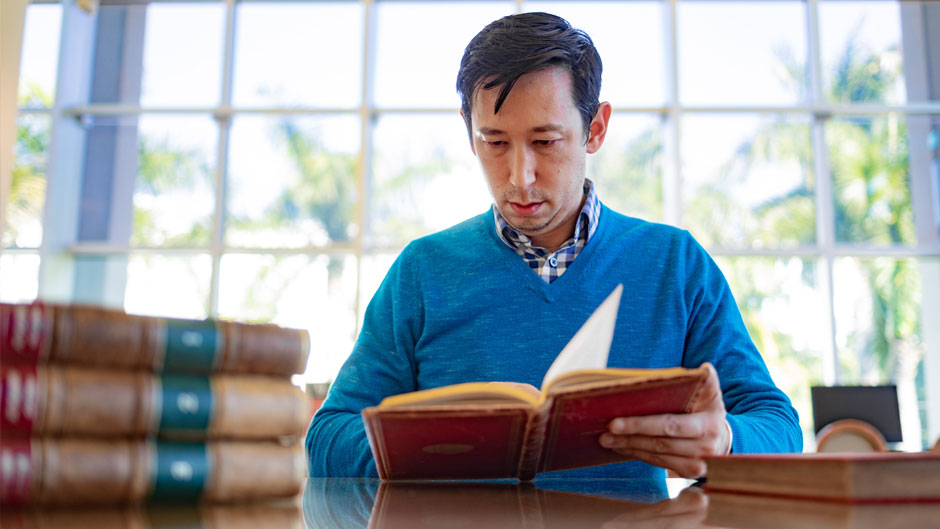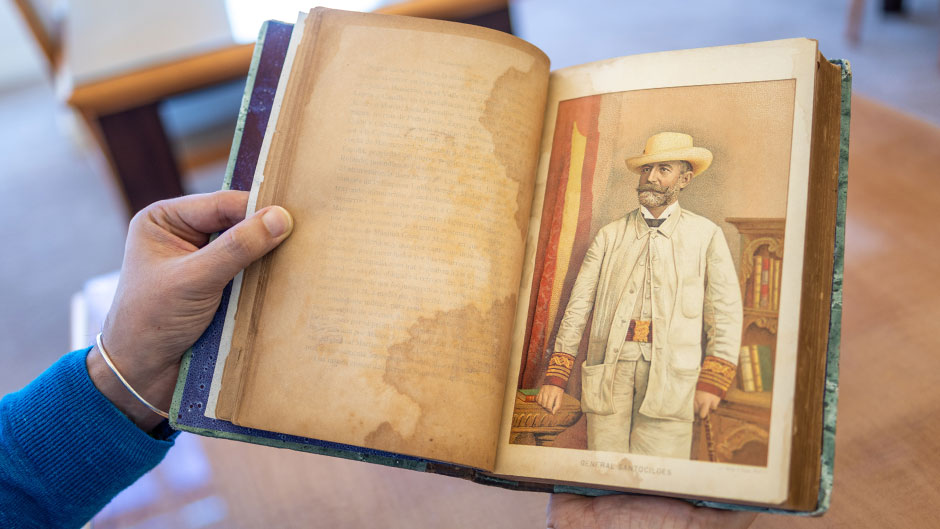In 1761, Juan de Prado, then governor of Cuba, was ordered by the Spanish, who ruled over the island, to strengthen the island's fortifications since a siege by British forces seemed imminent.
De Prado’s efforts were thwarted by a yellow fever epidemic that swept over Havana. The British were able to occupy the Western portion of the island including Havana, which enabled them to increase trade between the island and Britain's North American and Caribbean colonies. This greatly increased the number of enslaved Africans working on Cuba’s sugar plantations.
The tale of this tug of war between major powers in the 18th century was chronicled and signed by Spaniard Juan Trevino, secretary of the investigative committee, in a manuscript recently donated to University of Miami Libraries’ Cuban Heritage Collection (CHC).
That manuscript, along with many others, were among the treasures donated to the CHC by Paul Cejas, University of Miami emeritus trustee, alumnus, and former ambassador to Belgium. The collection includes 16 books and periodicals.
“Ambassador Cejas’ donation includes an impressive and highly valuable collection of beautifully bound historical manuscripts, letters, and rare books that cover Cuban history from the late 18th through the late 19th century,” said Elizabeth “Liz” Cerejido, Esperanza Bravo de Varona chair and director of the CHC. “Many of these items offer firsthand accounts by commanding officers from the Spanish, British, and American armies of their respective roles in Cuba’s wars for independence.”
The letters “offer varying perspectives and insights into a foundational chapter of Cuban history, thus enriching and amplifying our holdings about Cuba’s late colonial period leading up to the forming of the republic,” she added.
“This is a valuable collection of primary and secondary source materials encompassing different transnational aspects of Cuban history with a military emphasis,” said Martin Tsang, CHC librarian and curator of Latin American Collections. “It will be invaluable to many scholars, students, and historians who wish to study this era.”

Librarian Martin Tsang is currator of Latin American Collections at the University of Miami Libraries.
An unusual aspect of the donation, which includes more than 100 manuscripts, as well as journals, is the high number of hardbound books containing handwritten copies of correspondence by Spanish and Cuban generals and other members of the military. These “letter books” offer unique insight into the many military excursions and battles on the island.
Tsang said that the CHC has many single letters by prominent politicians and leaders, with fewer bound and concentrated collections of letters as the Cejas donation offers. The letters offer information on daily operations by high-ranking officials providing a wealth of details on unfolding actions as they happened on the ground in Cuba.
One interesting set of letters chronicles the Ten Years’ War, where Cuban forces fought for independence from Spain. The manuscripts contain transcripts of telegrams, dispatches, decrees, orders, and official letters sent between the office of the Governor General of Cuba and various Spanish ministries and government officials, covering the entire duration of the war.
Cuban-born Cejas, who graduated from the University in 1969, was appointed as the ambassador to Belgium by former U.S. President Bill Clinton in 1998. He served in the post until March 2001.
A former banker and a certified public accountant, Cejas also was a member of the Miami-Dade County Public Schools Board and held the post of chairman. He has been a member of the University’s Board of Trustees since 2003.
Cejas also served as the chairman and CEO of PLC Investments, a family-owned investment firm, and as a director of the pharmaceutical company IVAX Corporation, as well as Mellon Financial.
Dorean Gordon Williams, senior director of lifelong engagement, confirmed that Cejas has had a long-standing interest in Cuban history and is a collector of Cuban art and historical texts and manuscripts.
“I felt UM had done so much for Cuban American students and I was fortunate enough to acquire a collection of historical books and diaries written by hand during the [Cuban] Civil War,” Cejas said, explaining the reason for donating the collection to the CHC. “There is no better home for them than UM. This is Cuban and it belongs in a library. It belongs in the University of Miami.”

